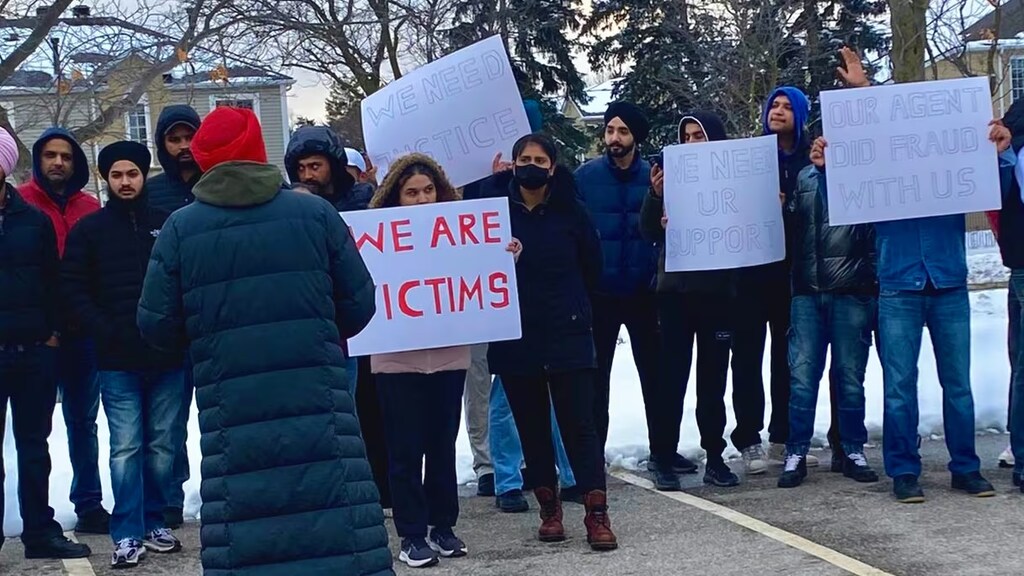
Canada Charges 14 in Major Work Permit Fraud Case Involving Migrant Exploitation
A sweeping immigration fraud case in Prince Edward Island (P.E.I.) has resulted in charges against 14 individuals and companies, including notable businesses Canadian Nectar Products and Island Gold Honey. The investigation has revealed systemic exploitation of migrant workers under Canada’s Temporary Foreign Worker Program (TFWP), prompting urgent calls for reform.
CBSA Uncovers Extensive Violations
In a public statement, the Canada Border Services Agency (CBSA) confirmed it had laid charges on April 30, 2025, against eight individuals and six companies after concluding a multi-year investigation involving eight search warrants, electronic surveillance, and review of hundreds of documents.
The case has been filed in Georgetown’s provincial court, P.E.I., and includes accusations of immigration fraud, money laundering, and unauthorized employment of foreign workers.
Summary of Allegations
The accused include business owners, immigration consultants, and accounting firms. Key defendants are:
- Kamalpreet Khaira, owner of Canadian Nectar Products
- Roger O’Neill, owner of Island Gold Honey
- Thomas Walker, director of MCPA Consulting Group and a previously disbarred accountant
- Numbered companies including 102045 P.E.I. Inc. (Fruits Canada), 102095 P.E.I. Inc. (Atlantic Canada Nurseries), and 2786244 Ontario Inc.
Core allegations involve:
- Misrepresenting facts in Labour Market Impact Assessments (LMIAs)
- Submitting fraudulent documentation to hire foreign workers
- Employing workers outside the authorization of their permits
- Laundering the financial proceeds of these schemes
- Charging migrant workers thousands in fees for jobs that did not exist
The Human Cost of Fraud
Testimonies presented by CBC’s The Fifth Estate and court documents outline a harrowing experience for affected foreign workers. Many paid up to $30,000 to immigration consultants for jobs that never materialized or offered fewer hours than promised.
Some workers were allegedly:
- Redirected to different job sites without proper authorization
- Instructed to lie to authorities about their employment
- Forced into “cash-for-pay” arrangements, paying money to receive official pay stubs necessary for permanent residency applications
In one documented case, a worker paid $600 in cash to receive a cheque of $499.70, just to maintain eligibility for immigration status.
Legal Proceedings Underway
Presiding over the case, Judge Nancy Orr criticized the complexity and disorganization of the charge filings, asking for clearer separation of offenses and granting time for defense teams to review the evidence. The next court session is scheduled for August 2025.
Roger O’Neill appeared without legal representation and was advised to retain counsel due to the seriousness of the charges.
Systemic Concerns About the TFWP
The case casts a stark spotlight on long-standing concerns regarding Canada’s Temporary Foreign Worker Program, which allows employers to bring in foreign workers when local labor is unavailable.
While the TFWP includes requirements for:
- Employer-obtained LMIAs
- Proof of fair wages and working conditions
- Coverage of travel and housing expenses
…it has also faced criticism for weak enforcement, worker dependency on employers, and barriers to changing jobs—creating conditions conducive to exploitation.
The P.E.I. case illustrates these weaknesses, with evidence of jobsite fraud, misuse of employer power, and document falsification.
Advocacy and Reform Demands
Organizations such as the Migrant Workers Alliance for Change and The Cooper Institute—which first flagged concerns in 2021—are now calling for urgent reforms, including:
- More rigorous vetting of LMIA applications
- Open work permits to allow labor mobility
- Mandatory audits and faster complaint resolution
- Stronger penalties for violators
Internationally, the case echoes criticism from a 2023 United Nations report, which likened certain aspects of Canada’s foreign worker programs to modern slavery due to workers’ reliance on employers for immigration status.
Economic and Ethical Implications
This case holds wider implications for P.E.I.’s agricultural economy, which relies heavily on foreign labor. A loss of trust in the integrity of local employers may deter future foreign workers and damage industry reputation.
Moreover, as companies face criminal charges, including for money laundering, questions arise about the financial oversight and compliance mechanisms in the immigration ecosystem.
Looking Ahead
The upcoming court proceedings in August are expected to clarify the scope of wrongdoing and may set a precedent for future enforcement actions.
For migrant workers, this is a step toward justice after enduring deception, financial hardship, and uncertain immigration status. For policymakers, it signals a need to restructure the TFWP and improve protections for one of Canada’s most vulnerable labor groups.
This case underscores the importance of transparency, enforcement, and legal reform in Canada’s immigration system—and a collective responsibility to safeguard the dignity of foreign workers who contribute significantly to the nation’s economy.
For a consultation about Immigration options, reach out to the CAD IMMIGRATION today!

